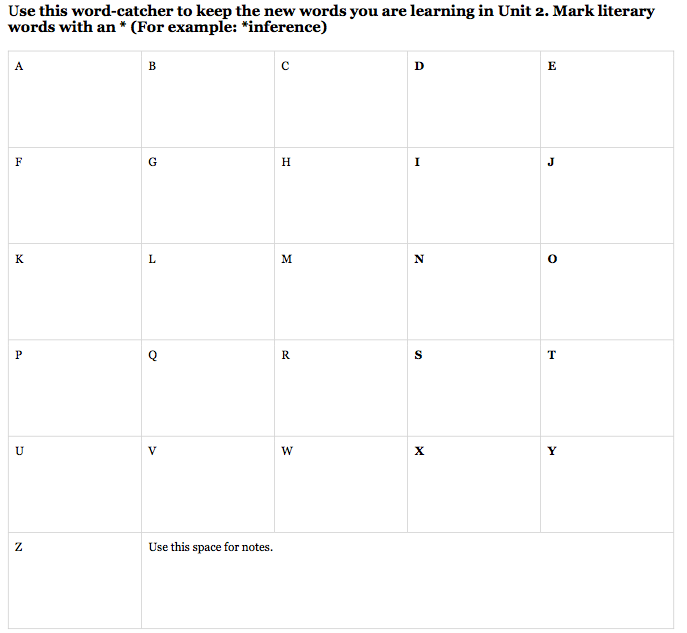Today is a ‘D’ day, so we will go to Gym. Make sure you have your gym clothes and deodorant. Then take out your ELA homework from last night and place it on your desk. I would like to check it while you are at gym. If you have a late homework assignment, like your Independent Reading Letter or your Imaginary Nation, please get them handed in to me right away this morning. There are many of you who owe me missed assignments. Mrs. Sargent and I want to see you being more responsible with your homework. Please pick up an Ipad and work on the P2P.
Thank you,
Mrs. Sargent & Mr. T.
P2P: (Use Your Copy of Myths & Legends)
What statement does not describe the “Greek Gods?”
A. Gods could transform humans as a way to punish them or as a way to protect them.
B. Gods were as smart as men but did not have the same kinds of feelings.
C. Gods descended to Earth and had children with mortals called heroes.
D. The Gods resembled men, and men built temples to worship and honor the Gods.
 |
| Unit 2: Lesson 2 Part I |
- I can use details from images to make predictions about the myth of Cronus.
- I can get the gist of the myth of Cronus.
- I can reflect on the things that close readers do.
Activity #1
Making a Prediction
What do you notice?
What do you wonder?
What do you notice?
What do you wonder?
Based on what you noticed and what you wondered, make a prediction about the myth of Cronus. Support your prediction with evidence and details from the images. (Write it at the bottom of the page.)
Activity #2
Preview Reading Closely Documents
What do you notice?
What do yo wonder?
Approaching the text happens right from the moment the text is in your hand, or in front of you.
Before you begin reading you need to think about why you are reading the text. Are you reading for entertainment? Are you reading to learn something new? Are you reading to gather information on a topic you are researching?
Activity #3
Reading the myth of Cronus in your Triad Groups.
When you read a text for the first time, what is your purpose for reading?
Words to add to your Word Catcher
(Lesson 1 Page 11)
Are there any new words to from the Myth of Cronus to add to your Word Catcher?
- Inference*
- allusion*
- deceit
- immortal
- divinities
- solemnity
Record the definitions in your "Reading Strategies" Section:
Key Question:
What is the difference between a literary word and a word from a text?
What does the word ‘allusion’ mean?
- Comes from the root word allude, which means to play beside, or to call attention to.
- Rick Riordan alludes to many Greek myths in The Lightning Thief.
- To understand Percy better we will become familiar with some of these myths.
Homework:
Read Chapter 10 and record Book notes whenever you see a reference to Cronus.
Learning Stations
Block 1 Block 2
Rotation 1
10:40 - 11:00 1:20 - 1:40
Rotation 2
11:05 - 11:25 1:40 - 2:00
Station 1 Read Aloud/Guided Reading
- Tangerine: Pages 137-151
Station 2 Computers NewsELA.com (Non-Fiction/Expository)
- Select a category & choose an article that looks interesting.
- Select the Right level for YOU!!
- Complete the 5 W’s Graphic Organizer
- Be Prepared to share what you read “IN THE NEWS"
Station 3 Independent Reading (Fiction/Narrative)
- Remember to fill in your “Book Notes” at the end of each reading session. (Notebook checks)
- Letter will be due on Friday Oct. 24 (Block 2 only)
- See the Criteria for your letter below
Station 4 Journal Writing or Letter Writing
- See the Anchor chart for writing ideas
- Date Each Entry
- Be prepared to share your writing
Criteria for Independent Reading Letter # 3
Block 2 - Due Friday October 24
Paragraph 1
1. Tell me the title and author
2. Write the Gist
3. Write a brief summary
Paragraph 2
4. Describe the main character (What type of person is the main character?)
5. Make an Inference about the main character. Use evidence from the text to support your inference.
Paragraph 3
6. Write a prediction about what you think might happen in the book.
7. Finish with a question or something that you wonder.









No comments:
Post a Comment